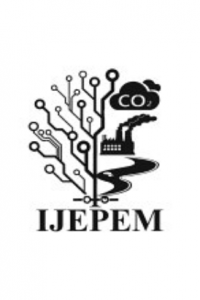Respecting Nature: A Study to Environmental Ethics
Respecting Nature: A Study to Environmental Ethics
___
- Akpan, B. S., & Leonard, N. 2018. Environmental ethics: from philosophy to movement. Bulletin Social-Economic and Humanitarian Research, (2), 39-45.
- Anthony, G. B., & Essien, C. K. 2018. Sustainable management of solid waste in Nigerian urban centres. LWATI: A Journal of Contemporary Research, 15(3), 1-10.
- Bassey, S. 2022. Individualism Vs. Holism: A Discourse in Environmental Ethics. The Abraka Journal of Religion and Philosophy (AJRP), 2(1&2), 214-240.
- Bassey, S. A. 2020. Technology, environmental sustainability and the ethics of anthropoholism. Przestrzeń Społeczna, 2(2/2020 (20)).
- Bassey, S. A., & Eyo, U. E. 2020. COVID-19 Outbreak: Wet Markets and The Ethics of Anthropoholism. Euromentor, 11(3).
- Brinkmann, S. 2009. Facts, values, and the naturalistic fallacy in psychology. New Ideas in Psychology, 27(1), 1-17.
- Callicott, J. B. 1995. Intrinsic value in nature: a metaethical analysis. Electronic Journal of Analytic Philosophy, 3(5), 1-8.
- Conway, P., & Gawronski, B. 2013. Deontological and utilitarian inclinations in moral decision making: a process dissociation approach. Journal of personality and social psychology, 104(2), 216.
- Eba, M. B. A. 2020. A Critique of Aldo Leopold Land Ethic for Environmental Management. Jurnal Office, 6(2), 131-142.
- Essien, E. E., Adie, B. A., & Ekpo, M. E. 2021. Assessment of Leadership Vis-A-Vis Corruption in Nigeria: Rethinking Nation-Building in Post COVID-19 Era. Education For Today, 17(1), 162-170.
- French, W. C. 1995. Against biospherical egalitarianism. Environmental Ethics, 17(1), 39-57.
- Fry, T. 2000. Architectural education against the defutured. Architectural Theory Review, 5(1), 46-60.
- Garcia, E. V. 2012. A new look at Kantian respect for persons. Kant yearbook, 4(1), 69-90.
- Gustafson, A. 2013. In defense of a utilitarian business ethic. Business and Society Review, 118(3), 325-360.
- Heynen, N., Kaika, M., & Swyngedouw, E. 2006. Urban political ecology: politicizing the production of urban natures. In In the nature of cities (pp. 16-35). Routledge.
- Hursthouse, R. 1991. Virtue theory and abortion. Philosophy & Public Affairs, 223-246.
- Hursthouse, R. 2007. Environmental virtue ethics. Working virtue: Virtue ethics and contemporary moral problems, 155-171.
- Ignatius, I., Umotong, I., & Dennis, O. (2022). Heidegger's notion of truth as Alethia: a critical exposition. International Journal of Humanities and Innovation (IJHI), 5(2), 74-79.
- O'Neill, J. 1992. The varieties of intrinsic value. The Monist, 75(2), 119-137.
- Salleh, A. K. 1984. Deeper than deep ecology: The eco-feminist connection. Environmental ethics, 6(4), 339-345.
- Sandler, R. L. 2009. Character and environment: A virtue-oriented approach to environmental ethics. Columbia University Press.
- Taylor, P. 2008. Biocentric egalitarianism. Environmental ethics: Readings in theory and application, 5, 139-54.
- Umotong, I. (2012). Religious Factor in African Politics. African Political Philosophy, 237-249.
- Umotong, I., & Dennis, O. (2018). An Expository Analysis of Martin Heidegger’s Quest for The Meaning of Being. Journal of Interdisciplinary Studies, 4(1).
- Westra, L. 2001. From Aldo Leopold to the Wildlands Project. Environmental Ethics, 23(3), 261-274.
- Yayın Aralığı: Yılda 2 Sayı
- Başlangıç: 2018
- Yayıncı: Yasin Akın AYTURAN
Ademola AMUDA, Patience Joseph TUBASEN
The implications of Kantian Ethics for Non-rational Nature/Beings: A Study in Environmental Ethics
Tagore’s Philosophy of Man and Nature: A Study in Environmental Ethics
Respecting Nature: A Study to Environmental Ethics
Evaluation of Tree Species Composition and Density in Bisaula Forest Reserve Taraba State, Nigeria.
